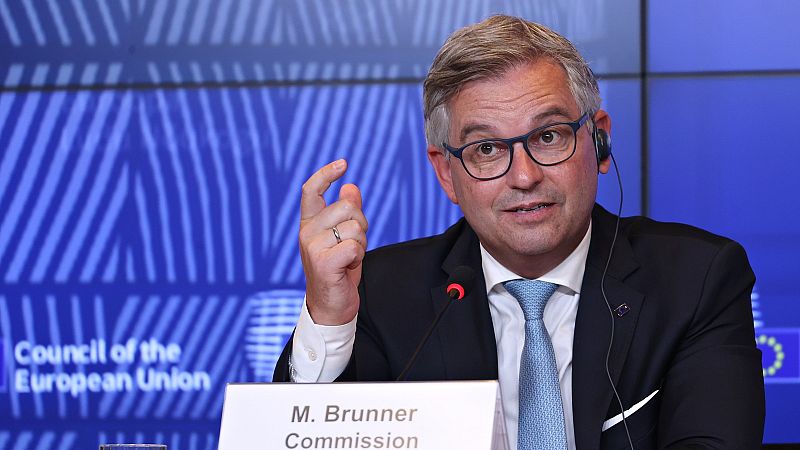
Magnus Brunner, the European Commissioner for Internal Affairs and Migration, was on Tuesday declared "persona non grata" and asked to depart Libyan territory upon arriving at the airport of Benghazi.
The order was issued by the Government of National Stability (GNS), the rival of the internationally recognised Government of National Unity (GNU).
The GNS controls the city of Benghazi and Eastern Libya, even if in reality the power is held by the military dictatorship of Khalifa Haftar. The GNU controls Tripoli and the West.
The immediate expulsion also applied to Matteo Piantedosi, Italy's minister of interior, and a delegation of Greek and Maltese officials.
They had all travelled to the country to discuss the recent surge in the departure of irregular migrants from Libya to Europe, which had put Brussels on high alert.
In a press release signed by Prime Minister Osama Saad Hammad, the GNS denounced what it called "flagrant contravention of established diplomatic norms and international convention," "actions that demonstrably disregard Libyan national sovereignty," and the "violation of Libyan domestic law," without providing specific details.
"Consequently, the scheduled visit (...) was rescinded upon their arrival at Benina International Airport in the city of Benghazi," the press release says.
"They were duly informed of the imperative to depart Libyan territory forthwith and were declared persona non grata."
It was not exactly clear what prompted the expulsion.
The European Commission only spoke of a "protocol issue" at the Benghazi airport that made it impossible to carry out the "planned meetings," a spokesperson said on Thursday, refusing to explain what the issue in question was.
The delegation expected to meet the Libyan Armed Forces led by Khalifa Haftar, but was received by the Government of National Unity, which the EU does not recognise.
"The political and security situation in Libya is critical," the spokesperson said. "So political engagement by the EU and member states is crucial, considering the geopolitical consequences."
After the incident in Benghazi, technical talks continued in Tripoli.
This story has been updated with more details.







